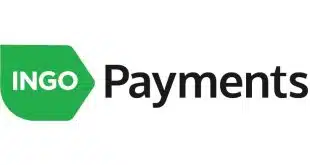Retail sales are slumping and stores are closing, but the online retailing channel?and thereby online payment transaction volumes?will come through relatively unscathed, according to a new report from Javelin Strategy and Research. Javelin's latest online retail payments forecast predicts Internet retail purchases will total $148 billion this year, up 10.4% from an estimated $134 billion in 2007. That's much better than the outlook for overall retail sales. The U.S. Commerce Department's Census Bureau on Friday estimated that retail and food sales adjusted for seasonal variations but not price differences fell by 2.8% in October from September's levels and by 4.1% from October 2007. Retailing analysts called the October numbers a record drop and are predicting the worst Christmas spending season in years. But as online retailing goes, so go online payments. Javelin predicts the trend away from credit cards will continue. But alternatives to credit and debit cards (especially signature-based debit cards) for Internet purchases?everything from PayPal Inc. to Google Inc.'s Google Checkout and Revolution Money–will escape the overall economic carnage. That's because online shopping still appeals to consumers even when money is tight, and the alternatives offer merchants either low pricing or other advantages, according to James Van Dyke, president and founder of Pleasanton, Calif.-based Javelin. “I don't think there will be much impact,” Van Dyke tells Digital Transactions News. “I don't think there will be any slowing.” In fact, PayPal and a few other online systems, notably Bill Me Later Inc., which PayPal parent company eBay Inc. just bought, have morphed into what Javelin calls “mainstream” alternatives. With their massive consumer bases and merchant acceptance, these payment services will help fill the void that the recent tightening of consumer credit has created, Javelin's report says. But they also could pose a threat to financial institutions that issue credit and debit cards “because they are now established 'brands'?competing not only for transaction volume, and therefore revenue, but also brand mindshare among consumers,” the report says. “They also have the capability for relatively immediate migration to the physical world.” In contrast to these mainstream Internet alternatives, Javelin calls the smaller online payments players the “true” alternatives. They include Google Checkout, Amazon.com Inc.'s Amazon Payments (especially in the context of Amazon's growing rivalry with eBay), the automated clearing house's Secure Vault Payments, Revolution Money, Acculynk, eBillme, Trial Pay, and Moneta. All are either in earlier stages of development than the mainstream alternatives or have different goals than simply winning transaction volume from credit cards. For instance, search engine Google's goal for Google Checkout is not to “take over the online merchant payment space. Its goal is much broader,” the report says. Javelin says Google wants Checkout, which is tightly linked with the Google AdWords advertising service for driving Web traffic to merchant sites, to help consumers and merchants by compressing the online buying experience. “The true competitive implications of Google Checkout will become evident when it converges (or doesn't) with other Google initiatives, most notably the Android mobile development platform,” the report says. Android is Google's new operating system for mobile phones; Visa Inc. recently said it was would introduce transaction alerts and other services for that platform (Digital Transactions News, Sept. 25). Javelin estimates 11% of online buyers in the past year have used Google Checkout. Financial institutions need to keep their eyes on the true alternatives to ascertain whether they could grow into rivals that could cut them out of the online payments process, according to Javelin. On the flip side, Van Dyke notes that some banks have embraced the possibilities created by the payments alternatives, citing Wells Fargo & Co.'s support services for PayPal before eBay bought PayPal, and Citigroup Inc.'s funding for Revolution. Javelin's report estimates that credit and debit cards will capture 82% of online dollar volume this year compared with 18% for all the alternatives. By 2013, the respective shares will be 69% and 31%, Javelin predicts.
Check Also
QorPay Adds Services From Visa’s Cybersource to Its Payments Menu
QorPay Inc. reported Thursday that it has integrated its payment technology with Visa Inc.’s Cybersource …





